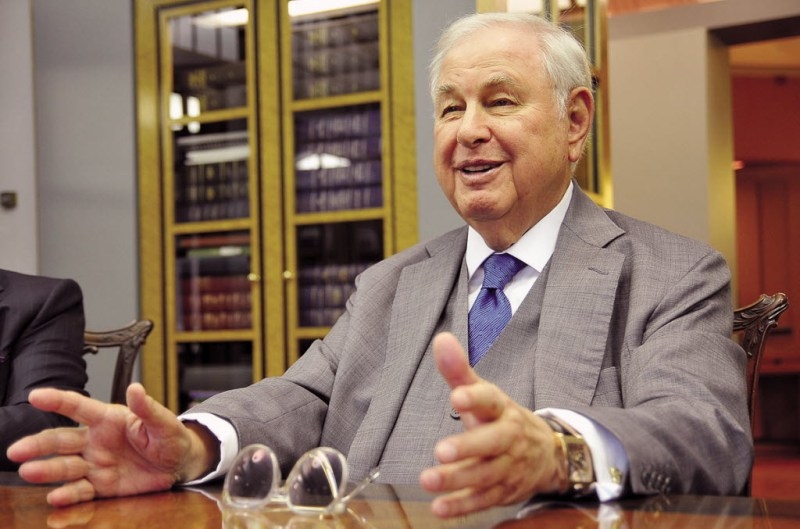
As the art world mourns the death of self-made billionaire art collector, shopping mall mogul, and former Sotheby’s owner A. Alfred Taubman (see Former Sotheby’s Owner and Billionaire Mall Mogul A. Alfred Taubman Has Died), many in Detroit are wondering: what will become of the Detroit Institute of Arts (DIA), one of Taubman’s pet patronages, in the wake of his death?
Taubman was one of the institution’s most generous donors, having gifted the museum tens of millions of dollars and a considerable number of artworks over the years. He served as a board member beginning in 1984, and in 1992, was named an honorary director. He headed the building committee in the late 1980s and early ’90s, and provided guidance in planning the museum’s $170-million expansion between 2002 and 2007.
While the museum is a beneficiary in Taubman’s will, the nature of his gifts remains unknown.
“I can honestly say that I’ve never had any substantive discussion with Al about his legacy,” director Graham Beal (see DIA Director Graham Beal Is Stepping Down) told the Detroit Free Press. “There have been glancing conversations. What I know is only speculation. That may sound odd, but that’s the case.”
Taubman, who pioneered the concept of the modern shopping mall, was born in Pontiac, Michigan, a suburb of Detroit. In addition to his gifts to the DIA, he has donated significantly to the University of Michigan, Brown University, and Harvard University.
He also served as president of the Detroit Arts Commission, which, according to a city resolution passed on October 17, 2013,
“is responsible for overseeing the Operating Agreement between the City of Detroit and the Detroit Institute of Arts, Inc.” Taubman helped guide the DIA through its recent financial problems (see Will Detroit’s Last Creditor Surrender Claim to DIA Collection?, All Eyes on Detroit’s Art Collection as Bankruptcy Trial Kicks Off, and Detroit Institute of Arts Will Contribute $100 Million to Fund City Pensions).
Beal, who noted that the museum would find out more information about Taubman’s will in the coming weeks, called him “one of the DIA’s most significant patrons in its entire history.”